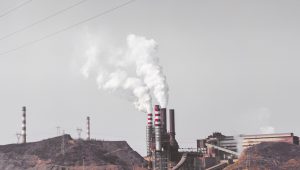The Green Industrial Revolution and Air Quality
09-03-2020
Last updated 13-05-2024
What is The Green Industrial Revolution?
The Green Industrial Revolution is a term cited by the likes of Jeremy Corbyn, Greta Thunberg and Extinction Rebellion, with a clear aim to galvanize direct action to resolve the current climate crisis. The term refers to a huge push in investment into renewable energy and low-carbon infrastructure, sweeping changes to how public transport services are operated and an overhaul of agricultural subsidies to prioritise conservation and habitat restoration, all whilst achieving air quality targets.
How Does This Affect Industry?
There are a multitude of areas that will be impacted by this revolution, such as the construction industry, which, according to a report given by the UK Energy Research Centre, will need to “undergo disruptive change” to deliver energy efficient building stock compatible with climate targets. These changes may come in forms similar to the plan to phase out fossil-fuel heaters in new-build homes by 2025, introduced by Chancellor Philip Hammond in his March 2019 Spring Statement. Construction is just one of the sectors facing the biggest shake-up. Others include industrial, heating and transport. It’s thought that these sectors face “starkly divergent futures – including futures where their core assets will need to be phased out”.

Photo by Verstappen Photography on Unsplash
Some sectors are reported to be more ready than others, such as the electricity sector which has already undergone major change. Other sectors will need to strive to meet the demand, especially the transport system which is said to be the largest carbon emitter in the UK economy. It will be a fine line to walk for corporations to simultaneously adhere to and drive the Green Industrial Revolution, especially in terms of industrial and construction emissions.
Air Quality
Myriad difficulties present themselves when construction firms and industrial corporations look to address their air pollution emissions in line with the Green Industrial Revolution. According to the campaign ‘Spotlight On… Air Pollution’, run by the Considerate Construction Scheme, the construction sector mostly contributes to air pollution through construction dust, plant machinery and construction transport, which in turn makes construction sites responsible for 7.5% of nitrogen oxide emissions, 8% of large particle emissions and 14.5% of emissions of the most dangerous fine particulate emissions. Industrial pollutants are also a decisive factor in the reduction of air quality throughout the UK, predominantly in the form of waste gases from combustion sources. If these industries are to continue to thrive in a Green Industrial Revolution then they will need to take substantive measures to limit their impact on air quality.

Photo by JuniperPhoton on Unsplash
Luckily, the opportunities to tackle these difficulties are also abundant. Some options include raising workforce awareness, deploying low-emission machinery and incorporating green infrastructure into industry development and construction. Other options include undertaking air quality assessments and air quality monitoring and surveillance. If you think you may need an Air Quality Assessment, our air quality consultants can help; contact us now.




